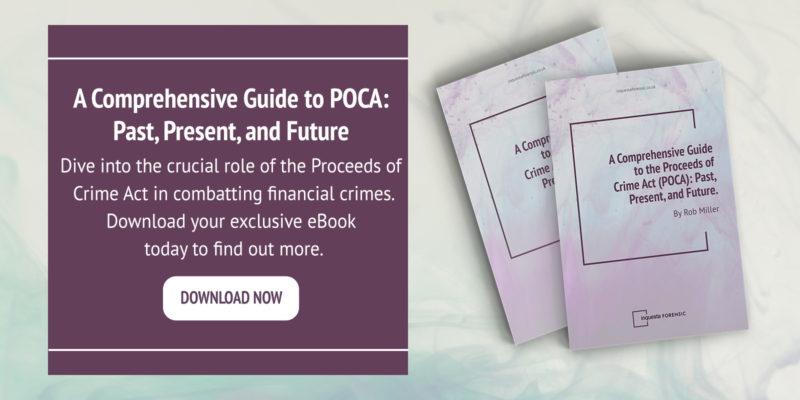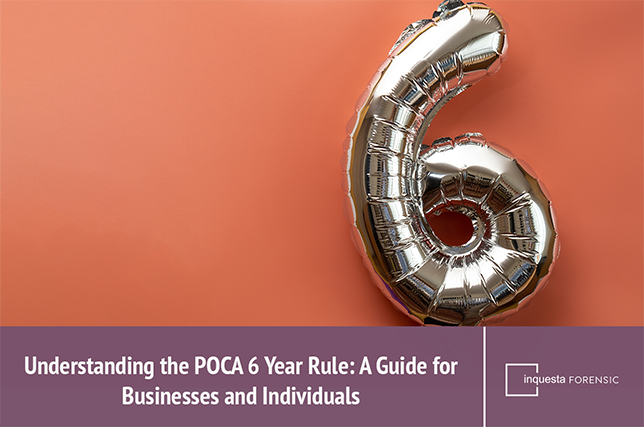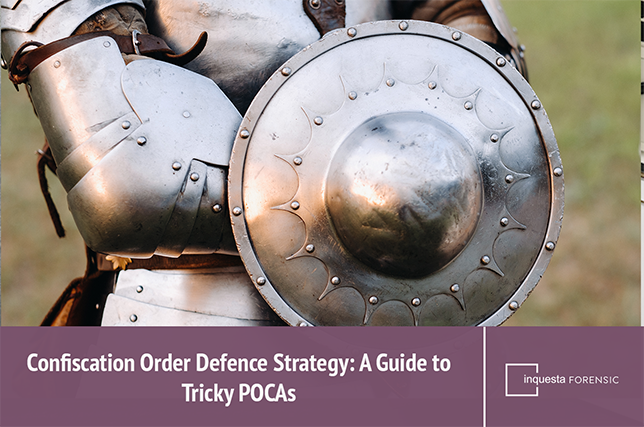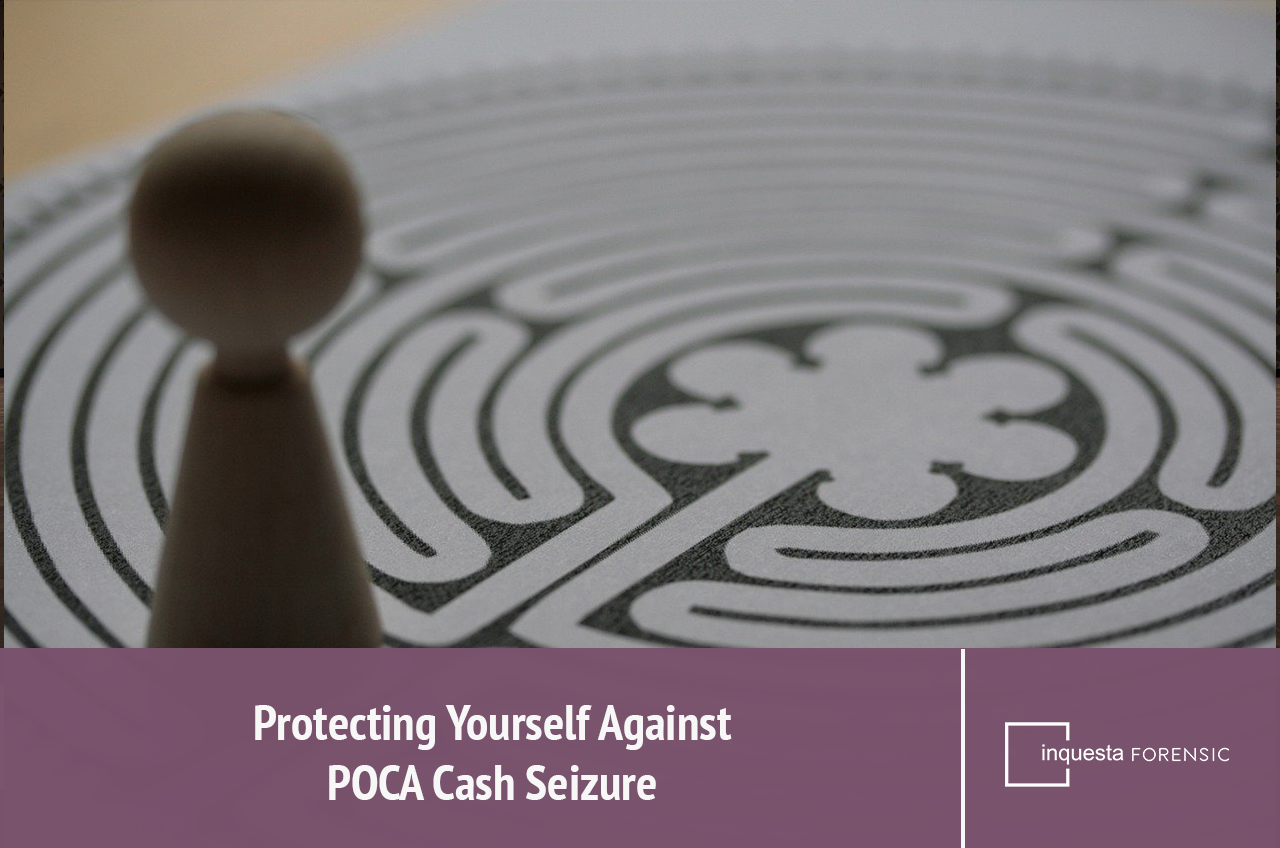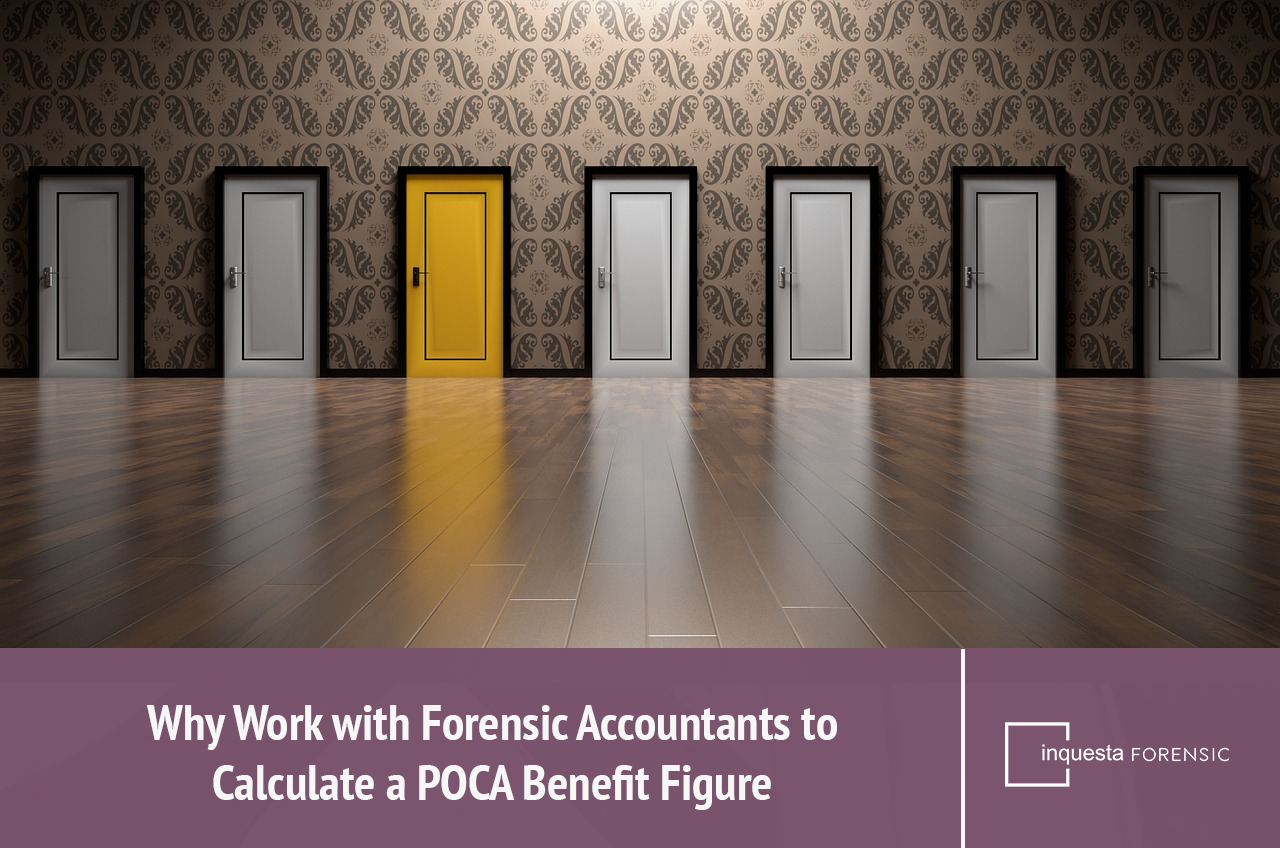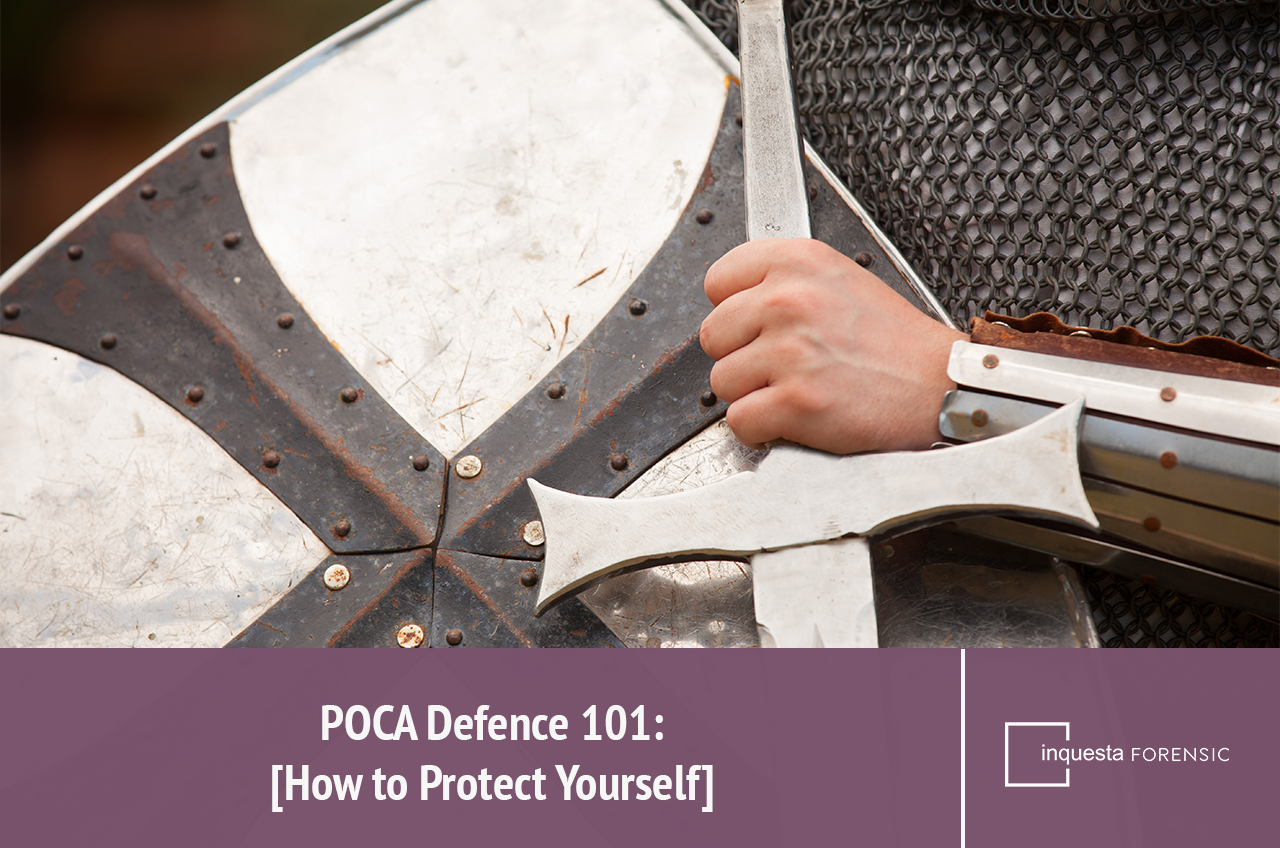The expertise, specialist skills, and years of experience of a forensic accountant could be the difference between seeing your case reach a satisfactory conclusion and looking back on it with regrets.
Unravel the intricacies of Proceeds of Crime Act (POCA) confiscation hearings with us today. If you’ve ever wondered about the process behind the legal system that covers the recovery of ill-gotten gains, you’re in the right place.
Whether you’re a legal professional wondering if you could do with assistance on a particularly complex case, or somebody looking to demystify the intricate landscape of POCA confiscation hearings, read on:
What are POCA Hearings?
POCA hearings, also known as confiscation hearings, are official legal proceedings intended to recover assets gained from criminal activities. These hearings will generally follow a criminal conviction, and their primary objective will be to identify, seize, and forfeit any and all ill-gotten gains.
The POCA Hearing process involves a thorough examination of the defendant’s records in an attempt to establish a causal link between their criminal activities and the assets they have accrued.
Key aspects of the confiscation hearing/POCA hearing process are:
- Confiscation Order: A POCA hearing will generally revolve around the issuing of a confiscation order. These orders are intended to recover all financial benefits obtained via the defendant’s alleged criminality.
- Conviction Prior to Confiscation Hearing: POCA hearings will almost always come after a criminal conviction. Once a person has been convicted, the court may then proceed with a hearing under POCA.
- Determine ‘Benefit’ and ‘Available Amount’: The court is responsible for assessing the ‘benefit’ obtained by the convicted person from their criminality. The ‘available amount’ refers to the assets that can be confiscated at the time of the hearing.
- Enforcement: Once a confiscation order is issued, the enforcement process will officially begin. This will require the convicted person to pay the amount specified within a designated timeframe or risk further escalation and additional penalties.
- Asset Recovery: Assets that are vulnerable to recovery during the POCA process include both tangible assets (properly, vehicles, jewellery) and financial assets (money held in bank accounts, investments etc)
- Challenge: An individual does have the right to challenge a confiscation order. This process will involve presenting evidence that disputes the benefit/available amount.
Confiscation hearings are a vital element of the legal framework in the United Kingdom. These hearings require detailed assessment of financial transactions. Additionally, POCA has an extraterritorial reach, allowing UK authorities to pursue assets located abroad if they are suspected of being the proceeds of crime.
The Complexity of Forfeiture Proceedings
Forfeiture proceedings and confiscation hearings are highly complex and deeply challenging processes due to the myriad of concealed transactions and deceit. There are a variety of methods a person undertakes to hide ill-gotten gains. This includes money laundering and offshore accounts, all of which add up to make getting to the bottom of such cases extremely difficult.
Complex aspects of confiscation hearings under the POCA process include the following:
Confiscation Orders and Financial Investigation
A huge part of the proceeds of crime act is the emphasis on financial investigation. It is crucial that a link can be made between criminal conflict and financial benefits derived thereof.
Without a provable link, the court will be unable to determine a confiscation amount.
‘Innocent Ownership’
Within the content of the POCA or other related forfeiture proceedings, the term ‘innocent ownership’ refers to the concept of recognising the rights of an individual or entity who may have a legitimate and lawful interest in assets that may be subject to confiscation or forfeiture.
Essentially, innocent owners are people who are not involved in, or even aware of, any criminal activities that may have led to the acquisition of an asset given to them.
Therefore, it is important that during confiscation hearings, a proper balance is struck between recovering as many of the ill-gotten gains as possible, and protecting the rights of innocent parties caught in the middle.
International Considerations
The Proceeds Of Crime Act has extraterritorial reach. This means that UK authorities have the right to pursue any assets they see fit, including any located abroad. This is useful when a person is believed to have hidden their funds in an offshore bank account.
However, coordinating with international law, enforcement agencies in other countries, and navigating the complex extradition process can be both difficult and time-consuming. This only becomes more difficult when assets are hidden in more than one jurisdiction.
Technological Aspects
POCA forfeiture proceedings could involve assets that are tied to modern technology, requiring additional expertise. Crimes like cryptocurrency fraud and cyber fraud will entail additional challenges to more ‘traditional’ crimes, and an in-depth understanding of digital forensics.
How Can a Forensic Accountant Help During Confiscation Hearings?
Forensic Accountants can play a vital role during confiscation hearings and POCA. This is because a specialist forensic account has a number of skills that allow them to analyse financial data and provide key insights that can be essential to determine the total amount to be confiscated. Forensic Accountants can trace transactions, identify hidden assets, and much more.
Here are several ways in which having a forensic accountant assisting on your case can be the difference between a successful outcome and abject failure:
Skills When Tracing Transactions
Forensic accountants excel when tracing financial transactions. During a confiscation hearing, these experts can accurately and efficiently follow the money trail in order to identify and document flows of funds related to criminality.
During this process, a forensic accountant will be able to analyse bank statements, track transaction records, and analyse financial documents in order to establish as clear a connection as possible between criminal conduct and the assets in question.
Locate Lost Assets
A criminal looking to conceal their assets will utilise methods like offshore accounts, trusts, or complex corporate structures. Forensic accountants will use their knowledge to help uncover these hidden assets.
They do this by conducting in-depth financial investigations. This ensures the most comprehensive assessment of a defendant’s wealth possible, and prevents assets from being lost during the confiscation hearing.
Quantify Financial Gains
One of the most important parts of the forfeiture proceedings is to determine the actual financial benefits the defendant obtained due to their criminality. A forensic accountant can, using their skills, assess financial records and accurately calculate the benefit derived from breaking the law.
These calculations can form the basis for the court’s ultimate decision on a confiscation amount.
Expert Witness
A part of the duty of a forensic accountant that many may not be aware of is that these specialists can also serve as expert witnesses during a confiscation hearing.
As an expert witness, the accountant will clearly present their findings and present this in the most understandable way possible. Having testimony in the shape of a forensic accountant will add additional credibility to the prosecution’s case and help the court make the most informed decision possible.
Guarantee Compliance
A key requirement for a forensic accountant is to stay up-to-date with the legal standards and necessary requirements that are in place for their case, including a confiscation hearing.
Therefore, the involvement of a forensic accountant should go a long way towards ensuring that the legal standard is followed at all times.
Accuracy and Experience When it Counts Most: Inquesta Forensic
If you’ve assessed your situation, and think that you need assistance navigating the intricate web of a POCA hearing, choosing the right forensic accountancy firm is paramount.
Amidst the assortment of complexities you can expect during forfeiture proceedings, the Inquesta Forensic team of experts stands out from the crowd. Leaders in our industry, we bring a wealth of skills to the table.
From experience in tracing transactions and locating hidden assets, to an aptitude for quantifying a person’s financial gains and even acting as an expert witness in court, we can add credibility and consistency to proceedings.
We are on hand to provide you with the confidence to know that your case is in the hands of a team of specialists dedicated to ensuring as informed, fair, and favourable an outcome as possible.
When every minute detail counts, choose a forensic accountancy firm you can trust. Contact Inquesta Forensic today or call us at 0161 243 0595 to find out more about what we can do to help.
- Your Partner’s Been Convicted: Can They Take Your House? What Section 10a POCA Means For You
- The Essential Role of Forensic Accounting in High Net Worth Divorce
- How to Value a Startup Business: A Guide for UK Entrepreneurs
- Pig Butchering Scams: Guide to Crypto Romance Fraud
- Shareholders’ Disputes: How Business Valuation Helps with Shareholder Dispute Resolution

